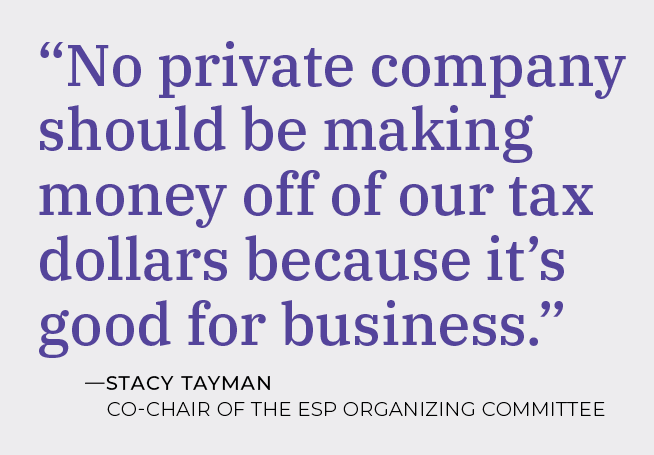Not for Sale: MSEA Fights Privatization of Support Staff Jobs

The shortage of skilled education employees in Maryland goes beyond setting new policies to expand and diversify the education profession—it also means looking at the issue of local boards of education using subcontractors as a way to fill the gaps in the shortages of support staff employees like bus drivers, custodians, and more who keep schools clean, safe, and running smoothly.
“We know support staff are the school employees who most often live in the communities where they work and take great pride, as they should, in their position as county employees,” said Cheryl Bost, MSEA president. “We believe that the stability of these positions is what helps make a school shine and become a hub of family and community life.”
Get up-to-date news on MSEA’s advocacy for anti-privatization legislation and more! Read Up the Street here every Friday!

As support staff across Maryland continue the fight for a living wage, fairness, and respect through MSEA’s ESP Bill of Rights, the looming threats of privatization by school districts, which import lower-paid workers from outside areas, indeed risk the stability of school communities and undermine the value of ESP and other educators. Too often, the support given to students has also declined when for-profit companies are brought into schools with no knowledge of the students and communities.
“We know that support staff are absolutely essential to the success of our students and our schools,” Bost added. “We also know that the goals of the Blueprint can’t be fulfilled without a high-quality, diverse support staff workforce. Unchecked privatization, primarily focused on making a profit, gets us further from, not closer to, those goals.”
This session, MSEA will advocate for guardrails around when school districts subcontract essential school services, including greater accountability and transparency from school districts and subcontractors. Accurate, transparent information is needed to ensure sub-contracting practices don’t threaten the quality of essential school services.
MSEA’s proposed legislation:
• Prohibits subcontracting work performed by public school employees during the term of an existing collective bargaining
agreement. A public school employer would be required to meet and consult with local unions regarding the decision to subcontract out work and negotiate the effects of the sub-contracting decision with its local unions. The public school employer would be required to provide advance notice to its local unions when it is considering or exploring subcontracting out work.
• Provides important protections from negative impacts caused by subcontracting, including a requirement that a subcontractor hire public school employees
if they are displaced as a result of the subcontracting agreement. Any displaced public school employee would retain their acquired seniority or tenure credit and have recall rights if the subcontracting agreement terminates.
• Creates essential minimum standards that must be included in any subcontracting agreement to preserve labor standards and ensure high-quality services are delivered, including pay and benefits.
• Includes stringent notice and open meeting requirements with the public and local unions regarding subcontracting agreements to allow public comment to ensure that the community’s voices are heard before decisions are made.
• Establishes remedies if a public school employer violates the law to ensure employers are held accountable to public school employees and the public.
“No private company should be making money off of our tax dollars because it’s good for business,” said Stacy Tayman, co-chair of the ESP Organizing Committee and president of the Calvert Association of Educational Support Staff. “We work in service of our students and we must have a process in place that ensures we don’t lose sight of that goal. The choices made by our school boards must be done with transparency and accountability and this legislation promises that.”

